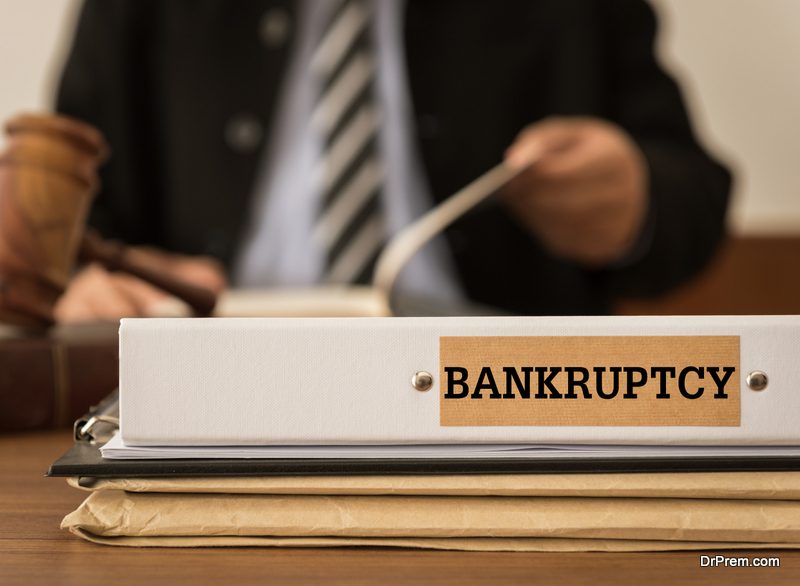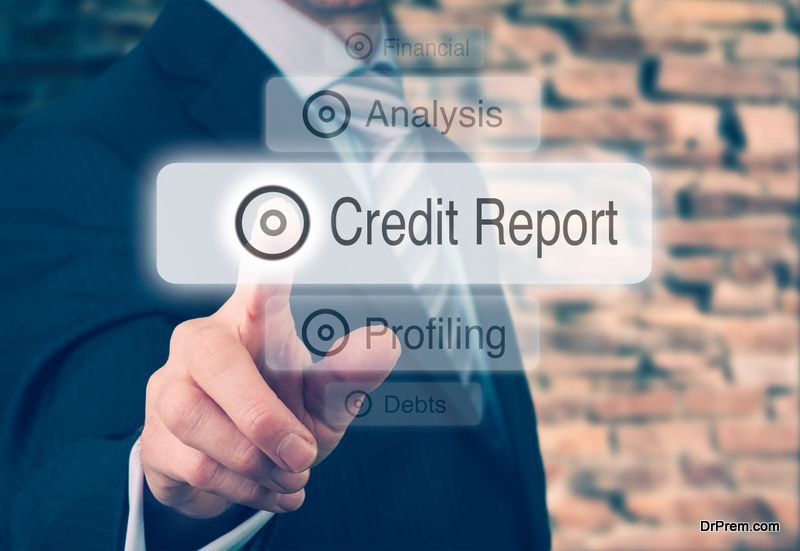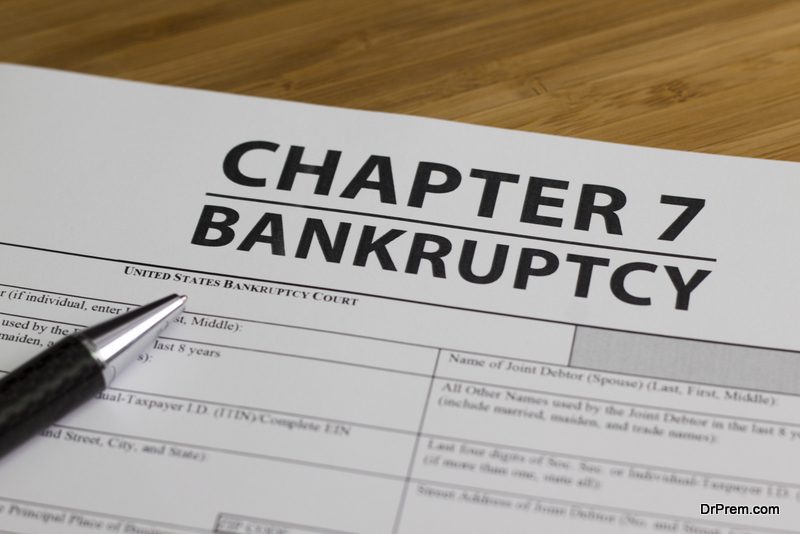There are many consequences of filing for bankruptcy. While considering to file, you will be faced with some immediate and long term challenges. As a business owner, it is important to learn about all the implications of filing chapter 7 ahead of time. When you are mentally prepared, you can handle the entire process smoothly. To help you get ahead, this post explains the major challenges to filing a chapter 7 bankruptcy.
Making The Decision To File
 The biggest challenge to filing chapter 7 bankruptcy is making the decision to start the process. You have to get fully informed if filing bankruptcy is for you. Often times, business owners who have strong income may be able to pay of their debt in a few years. If possible, make the effort to pay off your debt first. However, if you don’t see your income rising anytime soon, you may have to make the decision before your run out of money entirely. Undoubtedly, making the decision to file bankruptcy is a hard first step to take.
The biggest challenge to filing chapter 7 bankruptcy is making the decision to start the process. You have to get fully informed if filing bankruptcy is for you. Often times, business owners who have strong income may be able to pay of their debt in a few years. If possible, make the effort to pay off your debt first. However, if you don’t see your income rising anytime soon, you may have to make the decision before your run out of money entirely. Undoubtedly, making the decision to file bankruptcy is a hard first step to take.
Pass The Chapter 7 Means Test
The chapter 7 means test can determine your edibility for this type of bankruptcy filing. In order to pass the test, you have to show that you are unable to pay your creditors. If you are below the median income level, you automatically pass. Otherwise, you will have to fill out additional forms to determine your disposable income level.
If you have enough income after all your expenses and student loan debt, you may not be eligible for a chapter 7 filing. Instead, the court might force you to file for chapter 13 bankruptcy so that you can pay back creditors in a longer time frame. It can be a difficult task to determine your income and expenses to pass the means test.
Following The Chapter 7 Process
 If eligible, the chapter 7 bankruptcy process has many steps to follow. You need to make sure that you complete all the requirements such as mandatory credit counseling. In order to file the case, the debtor must attend counseling. Although this can be done over the internet, you will need to be committed to the process.
If eligible, the chapter 7 bankruptcy process has many steps to follow. You need to make sure that you complete all the requirements such as mandatory credit counseling. In order to file the case, the debtor must attend counseling. Although this can be done over the internet, you will need to be committed to the process.
Most importantly, it could help you gain valuable information before actually starting the chapter 7 bankruptcy process. Learning all the new credit information can be tough to follow through when you have so much going on financially.
Losing Your Home or Vehicle Assets
During a chapter 7 bankruptcy, you could end up losing your house, car or other major asset. If you have been living in your house for a long time, moving out is very hard. You may lose equity or value that you have put into the home. Similarly, you could end up losing your vehicle and having to find other means of transportation. However, according to chapter 7 bankruptcy lawyer David M Offen, “You are generally able to keep some or most of, if not all of your property through homestead, personal property or other exemptions.” Thus, you can keep some property if it’s exempt from sale from the bankruptcy trustee. As you can imagine, dealing with loss of property can be one of the hardest obstacles to deal with during a bankruptcy filing process.
Rebuilding Your Credit After Bankruptcy
 After filing chapter 7 bankruptcy, it will become exceptionally difficult to secure credit again. Since your profile poses a larger risk to lenders, they are less likely to approve your application for a car loan or mortgage. However, it is not impossible to get credit later on. You simply have to keep making your payments and building your credit score over the long term. In about 2-4 years, you can start to raise your credit score to the point where you can work with lenders again. Just make sure you lower your debt in the future. It takes a high amount of dedication and commitment to rebuild your credit after filing for bankruptcy.
After filing chapter 7 bankruptcy, it will become exceptionally difficult to secure credit again. Since your profile poses a larger risk to lenders, they are less likely to approve your application for a car loan or mortgage. However, it is not impossible to get credit later on. You simply have to keep making your payments and building your credit score over the long term. In about 2-4 years, you can start to raise your credit score to the point where you can work with lenders again. Just make sure you lower your debt in the future. It takes a high amount of dedication and commitment to rebuild your credit after filing for bankruptcy.
Filing for a chapter 7 bankruptcy has long term impacts on your financial situation. Throughout the process, you will have to deal with these challenges. Firstly, you need to get enough information to know if this decision is for you. Then, you will need to find out if you are eligible for chapter 7 by filling out a means test.
Upon filing, meet all the requirements like attending mandatory credit counseling. Prepare to lose some of your most valuable assets. Lastly, after filing, you will need to work hard to rebuild your credit. These are some of the most crucial challenges you will encounter when filing a chapter 7 bankruptcy.
Article Submitted By Community Writer




